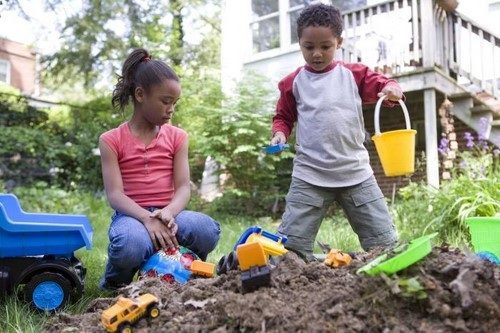
It’s heartbreaking, but in Africa, if a child manages to survive dangerous infectious diseases in the first five years of life, the next obstacle that waits is harm or death from injuries. School-aged kids are beginning the July to August school break so let’s learn some holiday safety tips to protect them as they enjoy playing at home and outdoors.
Every home with children should be childproof. You should arrange the house in such a way that things that can potentially harm a child are out of sight or protected from little prying fingers and mouths. Space limitations may make it difficult for you to childproof your home entirely but if you’re thinking about safety, you’ll pay attention to obvious injury risks in your house.
Children are active and completely clueless about the dangers of some of the things they do while playing. It’s critical that whether you or some other caregiver is watching over children, you practice touch supervision at all times. Touch supervision means that children around you are only an arm’s reach away from your touch at all times and you’re watching them.

Safety tip 1 – Prevent injuries
Do you know that falling is the number one cause of deaths from accidental home injuries? Burns, poisonings, and choking follow closely behind. Here are some simple steps to prevent these types of injuries:
- Keep floors dry and free of toys and obstructions
- Don’t let children use electrical equipment without supervision – microwave, kettle, iron
- Don’t let kids play with matches, fire or “cook” anything in the kitchen
- Supervise children at all times around fall hazards, such as stairs and playground equipment
- Lock windows, doors, drawers and cupboards to avoid falls and other injuries
- Avoid placing “stepping stones” such as a chair next to a window
- Don’t let kids three years old or younger eat hard pieces of food such as pieces of raw carrots, apples, sweets, hot dogs, grapes, groundnuts, and popcorn. They can choke!
- Be sure to keep household products such as cleaners, sprays, chemicals, and medicines up and away, completely out of sight and reach
- Never store kerosene in a container in which it can be mistaken for water by a child
- Teach your child street safety. Never let him cross the street without a grown-up
- Your child should always wear a helmet when riding a bicycle. Buy the helmet when you get the bike and never let your child ride outside without adult supervision!
Safety tip 2 – Protect from insect bites
Mosquitos, biting flies, and sandflies can create all sorts of problems for your child.
- Use an insect repellent spray or cream on your children when they play outside
- Make sure your kids sleep under Insecticide-treated mosquito nets
- Install mosquito netting on your windows

Safety tip 3 – Promote safe play in water
Children love playing in the water and can drown in only 2 inches of water!
- If you do not have running water and keep large plastic storage containers of water, weigh the lids down with a heavy stone or small block that only an adult can remove.
- NEVER leave your child alone in or near a bathtub, bucket of water, swimming pool, or any other water, even for a second
- Teach your children how to swim and about water and pool safety rules
- Always watch your children while they are swimming or playing in or around water.
- Knowing how to swim doesn’t mean your child is safe in or near water. Stay within an arm’s length of your child around water.
Safety tip 4 – Preserve your child’s innocence
Innocence, once lost can never be recovered. Every child should have the abounding joy of innocence and live in emotional and physical safety.
- Carefully select who watches over your child or has access to your child
- Do not give your kids unsupervised access to social media – there is a lot of inappropriate material available at the touch of a button
- Do not give your child unsupervised access to social media – there are child predators out there!
- Don’t expose your child to violence in the home
Make your own First-Aid Kit
Now that you know all the things to watch out for, it is a good time to put together a First-Aid Kit. You can’t prevent every accident, but you can be prepared. Here is a list to guide you:


